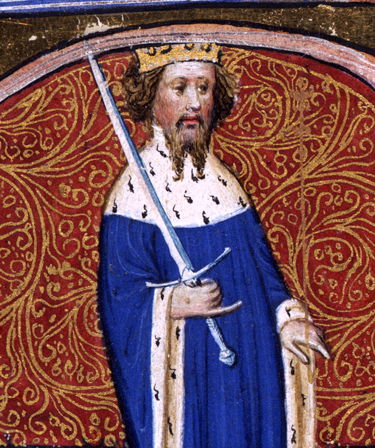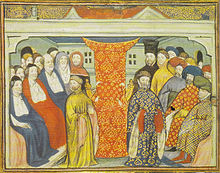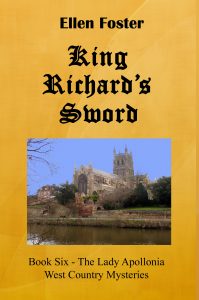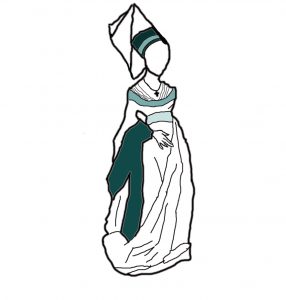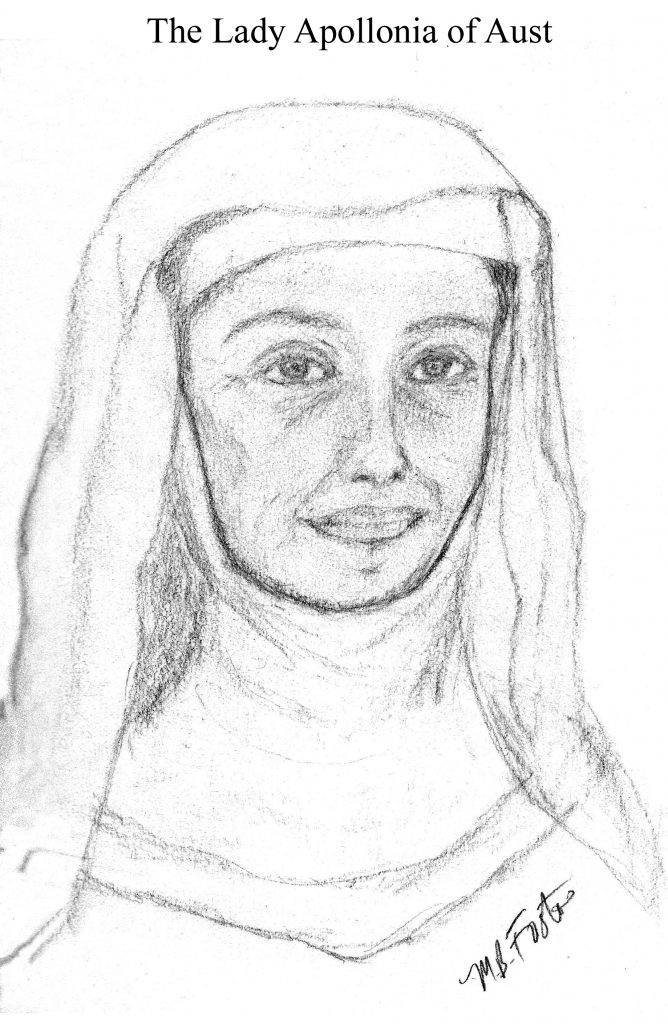Greetings again and thanks for joining us as we begin to examine topics which arise in Usurper’s Curse, the seventh book in my Lady Apollonia West Country Mysteries Series. We begin our topics with King Henry IV, the accused usurper in my book title, shown above in the only portrait ever done in his lifetime, a miniature from about 1402.
In my blog posting of October 25, 2021, I referred to him as Henry Bolingbroke, a designation which reflects that Henry was born in Bolingbroke Castle. His father was John of Gaunt, Duke of Lancaster and third son of King Edward III, who referred to Henry as Henry of Lancaster. Because Henry of Lancaster was King of England from 1399 to 1406 when Usurper’s Curse is set, here he is called King Henry IV. In my October blog posting, I gave a brief description of his usurpation of the crown from his cousin King Richard II in 1399. The picture shown below depicts Henry claiming the throne as he is flanked by his lords, both spiritual and noble.
King Henry IV was the first of four kings in just 84 years who usurped the throne of England, the others being Edward IV in 1461 and again in 1471, Richard III in 1483, and finally Henry VII in 1485. As with other kings of that period, Henry IV is best known to many of us through Shakespeare’s so-called histories. Shakespeare wrote plays that were influenced by the propaganda of the Tudor kings. The Tudors sought to justify the usurpation of Henry Tudor who could not claim the throne through inheritance but claimed it through conquest at the Battle of Bosworth against Richard III and became King Henry VII.
The subject of this post, however, the Lancastrian King Henry IV, was a much more complicated ruler than Shakespeare portrays in parts 1 or 2 of his history plays. Some have called Henry IV the most enigmatic ruler since the Norman Conquest. Others say he was the most intellectual of the medieval kings of England. His model for kingship was his grandfather King Edward III, not his despotic cousin, King Richard II.
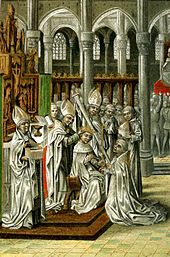 There is a great contrast between Henry’s life before his coronation in 1399, shown on the left, and his 13 years as ruler. In the first 32 years of his life before he became king in 1399, he was a man of good health who was a famous knight, one of the most admired in England at jousting. There was great competition between top knights of England and those of France in 1390. Henry was judged by the French to be the best of the English in the tournament.
There is a great contrast between Henry’s life before his coronation in 1399, shown on the left, and his 13 years as ruler. In the first 32 years of his life before he became king in 1399, he was a man of good health who was a famous knight, one of the most admired in England at jousting. There was great competition between top knights of England and those of France in 1390. Henry was judged by the French to be the best of the English in the tournament.
A devout man, Henry of Lancaster went on crusades to Latvia and Lithuania as well as a pilgrimage to Jerusalem. He later vowed that he would lead a crusade to once again free Jerusalem from the infidels.
All of this is in great contrast with the thirteen years of his reign after usurping the English throne from King Richard II. He was plagued by sickness through most of that reign, especially troubled with serious skin problems, though most scholars believe he did not suffer from leprosy. As Henry IV is monarch of England at the time of the setting of Usurper’s Curse, I have brought him and other real persons into my story, also used such facts that foreign doctors were eventually banned from serving the sickly king, and that the king spent some time recuperating in Lambeth Palace under the auspices of the Archbishop of Canterbury Arundel. A great contrast to Henry’s earlier vigorous life as a knight, such unmanning sickness and suffering was viewed by some as a curse upon him for his usurpation of the throne and his likely cause of the death of Richard II. Many at that time believed that such human struggles were punishment from God for acts that a person had committed.
Please join us next time when we will continue discussing topics from Usurper’s Curse.
